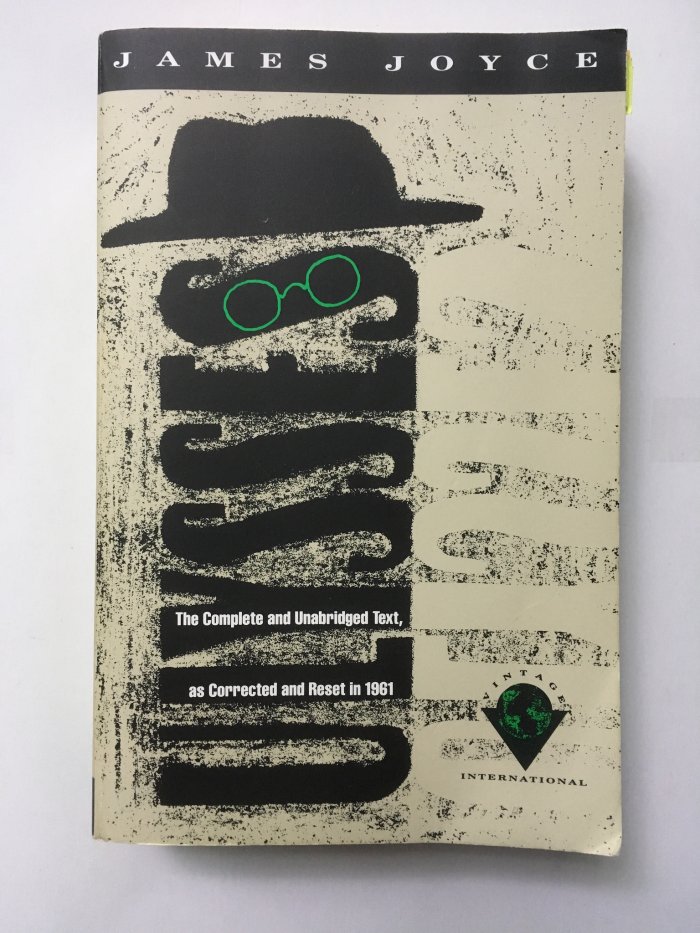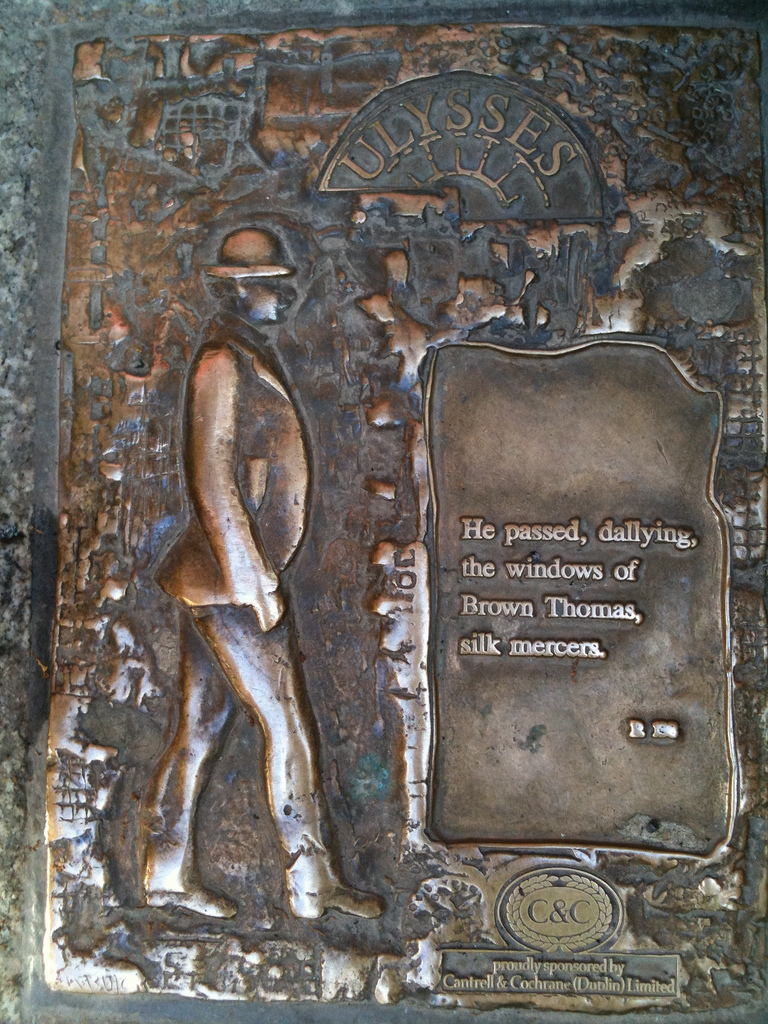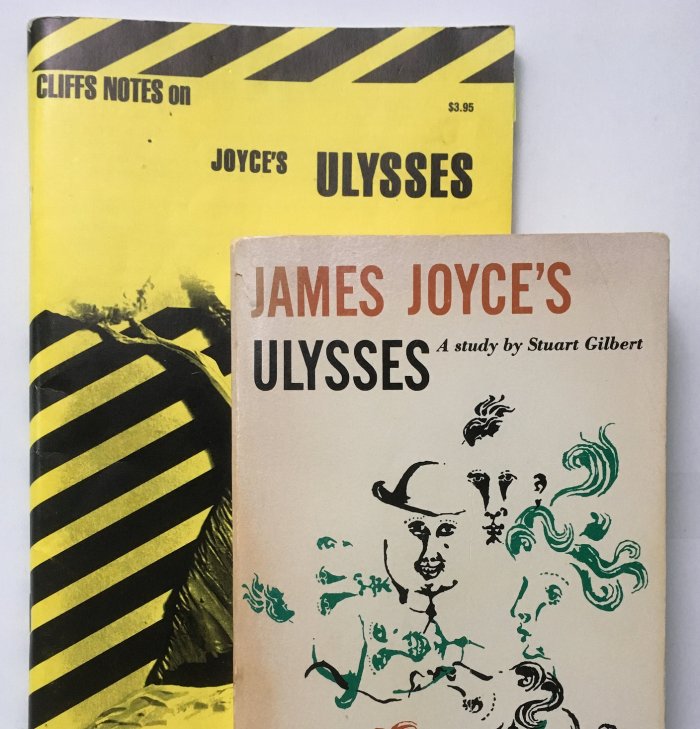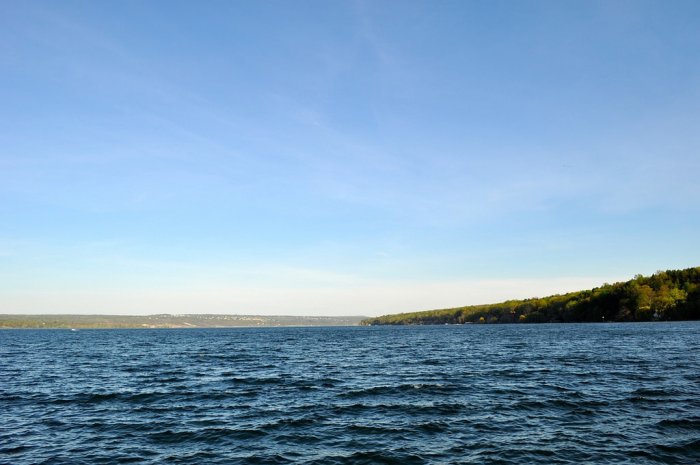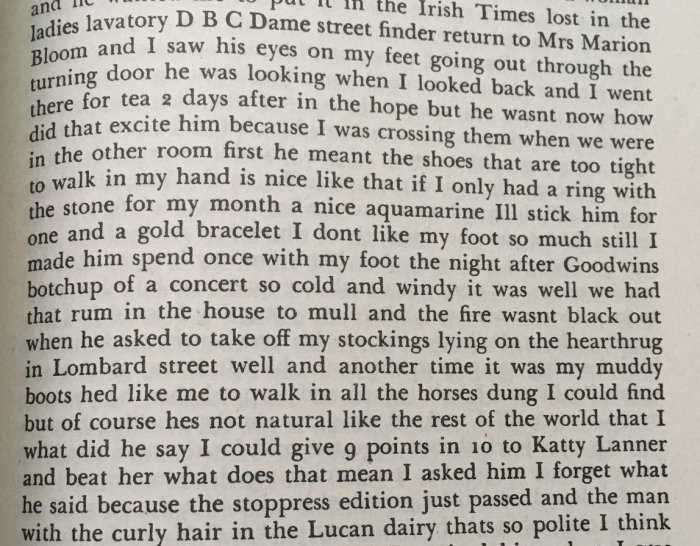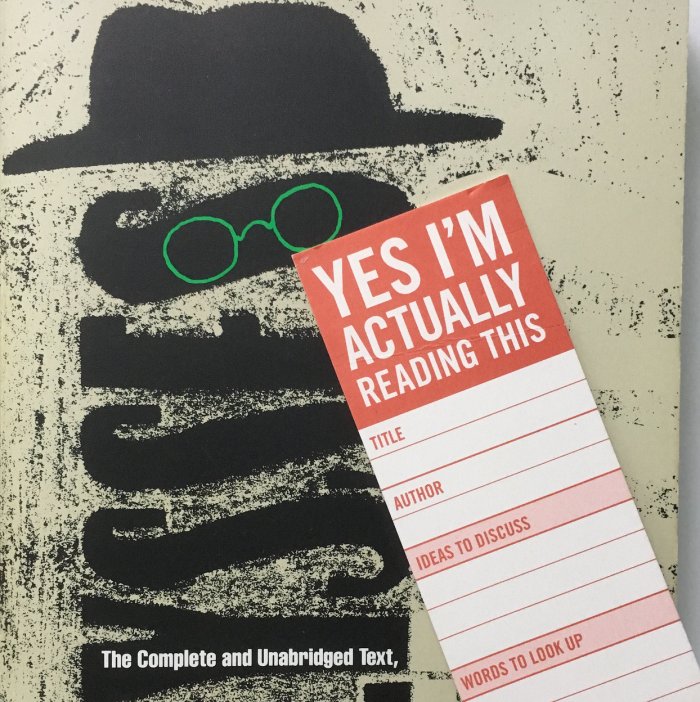Stream of Molly
2012-12-19
Molly Bloom is the focus of the last chapter of Ulysses (aka "Penelope"), and she is rendered so clearly that we know her immediately, perhaps more so than any other character in literature. The last chapter is famous (or perhaps I should say "infamous") because there are no punctuation marks. Despite this, I was able to get into a rhythm with her thoughts (and if you look you'll see that the chapter is broken into 8 sentences / paragraphs / breaks).
When you look up
"stream of consciousness" in the Wikipedia, you'll find the cover of Ulysses, and rightly so: in Penelope, we enter right in the middle of the stream that is Molly's thoughts, and when we leave it, there is very much the sensation that Molly will continue pondering her life until she falls asleep and wakes up the next day.
We enter her mind as she tries to get back to sleep. Bloom and Stephen Dedalus have parted ways, and Bloom enters their bed. They sleep "feet-to-head", meaning Bloom's head is at the end of the bed opposite Molly's. This is only one modest example of what a current reader might call "too much information" (TMI).
In her attempts to fall asleep, she conjures up the past men in her life, and her intercourse(s) with them. She does so in graphic detail which produced a ban of this book with a charge of obscenity in the the early 1930s (exonerated in court by Hon. John Woolsey). The reader will enjoy the 'naughty bits', and Molly's various insights ("he never knew how to embrace well", "they want everything in their mouth all the pleasure those men get out of a woman", "I had a skirt opening up the side I tortured the life out of him").
Molly impresses me as an extremely self-aware woman. She's a charmer, a seducer, a temptress ("I gave him all the pleasure I could leading him on till he asked me to say yes"). She understands the power of her sexuality. She also is very observant about the people in her life, and she catalogs their strengths, weaknesses,
peccadilloes and fetishes. She focuses most on Bloom, the book's hero, and despite his own perversions, her waning thoughts are of their young love ("he said I was a flower of the mountain"), and how she felt she couldn't do any better (or worse).
In a podcast about Ulysses on
In Our Time, one of the guests suggested reading this chapter first, but I feel it works best at the end. It's Joyce's most challenging chapter in his most challenging work, and it makes for a superb finish.
